Obama: No MLK, But Leading Man of Humanitarian Imperialism
Obama’s first term: What would MLK have said?
A few weeks before the presidential election, News Junkie Post tried to secure interviews with different prominent African-American media figures regarded to be on the very left of the United States’ political spectrum. The interview project would have been titled: “Obama’s First Term: What Would MLK Have Said?” The people approached for this project were, a few months before the election, highly critical of President Barack Obama’s first term in office, but as election day approached, they avoided our interview like the plague. Like many African-Americans, members of other minority groups, and so-called progressive voters, at the last minute they decided to stick by their man by muting their attacks on Obama to make sure he would be reelected, following the dubious logic of: “Obama is not as bad as the other guy.” But considering Martin Luther King Jr.’s own words, if he had been alive today, he would likely be one of the leading voices against Mr. Obama’s policies both domestic and foreign.
“A Time to Break the Silence”
As “Letter from Birmingham City Jail” was one of Martin Luther King Jr.’s most eloquent statements against social injustice, “A time to Break the Silence” was his major statement against war in general, delivered in 1967. The latter was presented in the context of expressing his staunch opposition to the Vietnam war and the escalation policy of Lyndon B. Johnson, but MLK’s words could very easily address the Obama administration’s war mongering policies in Afghanistan, Pakistan, Libya, Yemen and, probably soon, Syria. As a matter of fact, it is likely that MLK would have broken his silence as soon as Mr. Obama — a war president — had ironically received a Nobel Peace Prize in 2009. Just like today in the United States, King’s moral protest against the war was a minority position. Even people among his supporters in the black community were concerned that his anti-war position would take energy away from the civil rights movement. Dr. King also pointed out — and this remains the same in 2013 — that the poor and minorities in the US were the primary components of the US military.
“Over the past two years, as I have moved to break the betrayal of my own silence and to speak from the burning of my own heart, as I have called for radical departure from the destruction of Vietnam, many persons have questioned me about the wisdom of my path: ‘Why are you speaking about the war, Dr. King’; ‘Why are you joining the voice of dissent?’; ‘Peace and civil rights don’t mix’, they say.'” And further: “The Nobel Peace Prize was also a commission — a commission to work harder than I had ever worked before for the brotherhood of man. This is a calling that takes me beyond national allegiances,” said Dr. King.
Obama: The ultimate humanitarian imperialist
In his book “Humanitarian Imperialism,” published in 2006, author Jean Bricmont argued that since the end of the cold war, human rights have been used as a justification for war or foreign interventions — sometime under the auspices of the United Nations like in Haiti — by the world’s leading economic and military powers, and above all the United States. The criteria for such intervention are usually arbitrary and self serving. They can involve the muscle of global imperialism in the form of NATO, or a softer version such as USAID. President Obama, during his first term, become expert in this type of double language and hidden agenda. It was used in Libya to justify the intervention against Gaddafi, and the same discourse about protecting human rights is unfolding to deal with the Assad regime in Syria. The same rationale of humanitarian imperialism is used by Mr. Obama’s NATO ally, France’s President Hollande currently waging a war in Mali.
“US interference in the internal affairs of other states is multi-faceted, but constant and repeatedly violates the spirit and often the letter of the UN Charter. Despite claims to act on behalf of principles such as freedom and democracy, US interventions have disastrous consequences. Every aggressive action led by the US creates a reaction. Development of an anti-missile shield produces more missiles, not less. Bombing civilians — whether deliberately or by so-called ‘collateral damage’ produces more armed resistance, not less. Trying to overthrow or subvert governments produces more internal repression, not less.” wrote Jean Bricmont in February 2012.
Obama: A chameleon with a gift for public relation
In appearance, Dr. Martin Luther King Jr. and President Barack Obama share a lot in common. Both of are very intelligent individuals and excellent orators. But this analogy cultivated by Mr. Obama only holds water near the surface. The current occupant of the White House actually has more in common with Ronald Reagan than with the civil rights leader. Mr. Obama is ultimately an actor. It is by design that Obama’s public inaugural ceremony, which should have been scheduled for January 20, when he took his oath, coincides instead with the celebration of Dr. Martin Luther King Day on Monday January 21. Obama wants to keep this false analogy between himself and MLK going, as well as pay tribute to the civil rights leader.
Despite superficialities, Obama’s reelection does not at all embody what MLK longed for in his famous statement: “A man should not be judged by the color of his skin but by the content of his character.” Judging by his first term in office, it is impossible to know the content of Mr. Obama’s character. George W. Bush had very few qualities, but at least he had the merit of being unapologetic and transparent about who he was: the quintessence of the ugly American, aggressive and uncultured. Mr. Obama, on the other hand, gives the illusion of being a polished humanist despite being as imperialist as his predecessor. Obama is both a Nobel Peace Prize recipient and the United States’ hit man in chief. He is both a president who uses executive power to force a gun control law on US citizens, despite the second amendment, and the most successful salesman for the military-industrial complex in US history.
Editor’s Note: Photographs three and six by 13 Lucie.
Related Articles


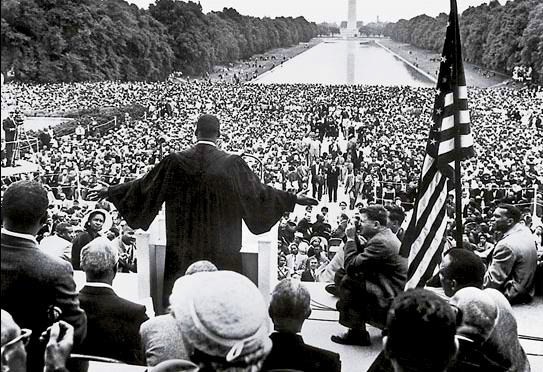
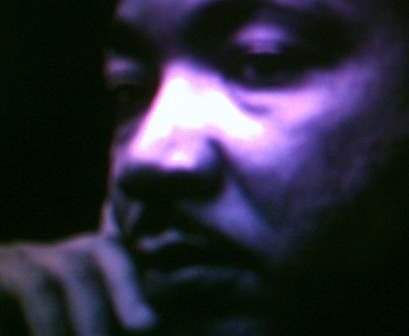
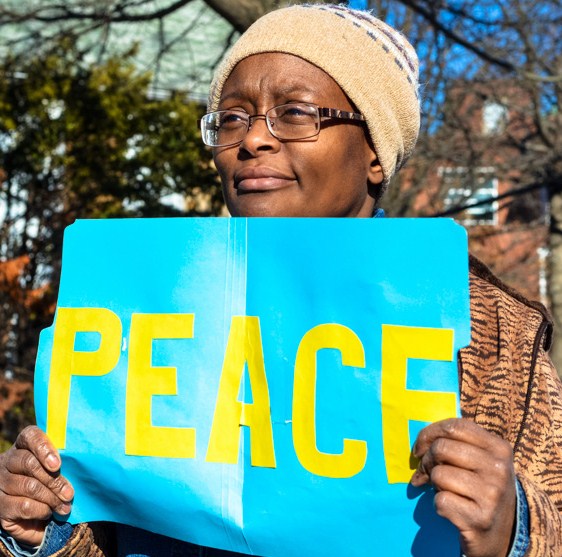

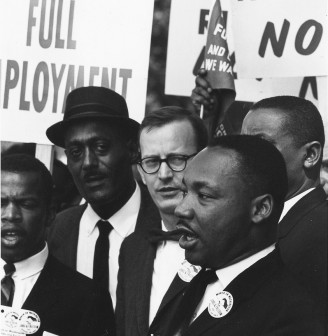
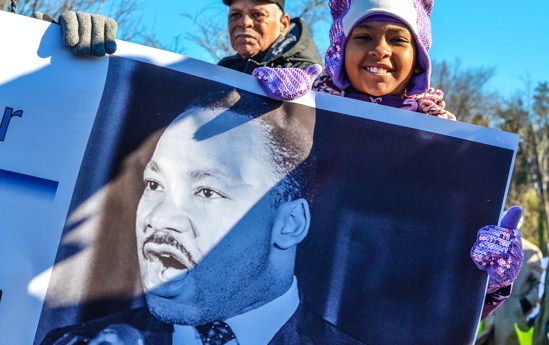
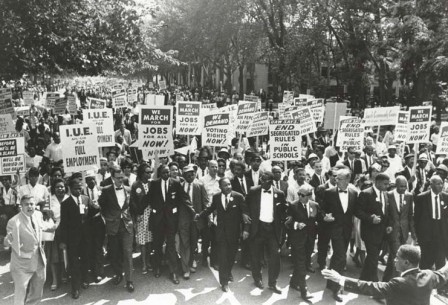











One Response to Obama: No MLK, But Leading Man of Humanitarian Imperialism
You must be logged in to post a comment Login